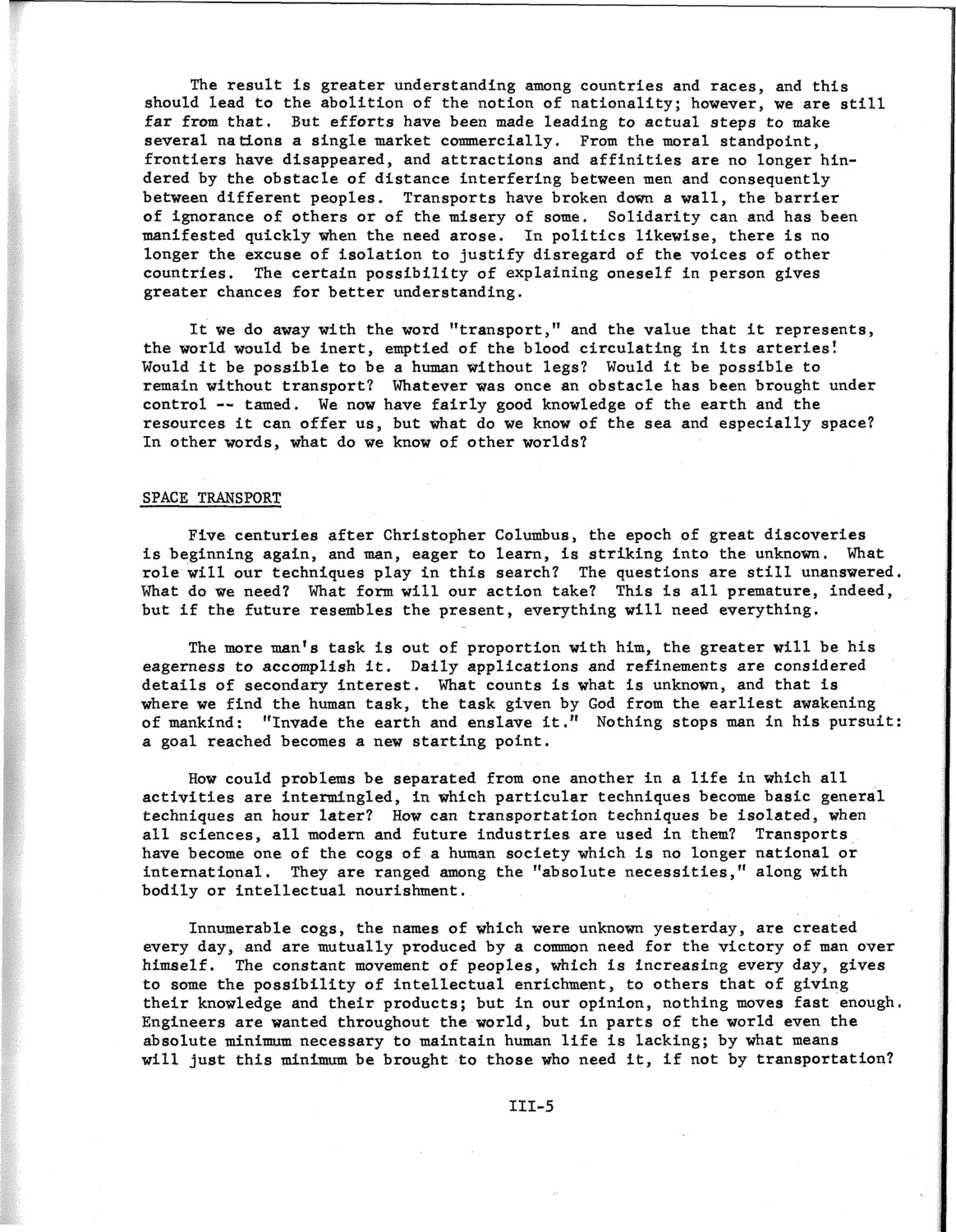| |
| |
Caption: SWE - Proceedings of the First International Conference of Women Engineers and Scientists
This is a reduced-resolution page image for fast online browsing.

EXTRACTED TEXT FROM PAGE:
The result is greater understanding among countries and races, and this should lead to the abolition of the notion of nationality; however, we are still far from that. But efforts have been made leading to actual steps to make several nations a single market commercially. From the moral standpoint, frontiers have disappeared, and attractions and affinities are no longer hindered by the obstacle of distance interfering between men and consequently between different peoples. Transports have broken down a wall, the barrier of ignorance of others or of the misery of some. Solidarity can and has been manifested quickly when the need arose. In politics likewise, there is no longer the excuse of isolation to justify disregard of the voices of other countries. The certain possibility of explaining oneself in person gives greater chances for better understanding. It We do away with the word "transport," and the value that it represents, the world would be inert, emptied of the blood circulating in its arteries! Would it be possible to be a human without legs? Would it be possible to remain without transport? Whatever was once an obstacle has been brought under control -- tamed. We now have fairly good knowledge of the earth and the resources it can offer us, but what do we know of the sea and especially space? In other words, what do we know of other worlds? SPACE TRANSPORT Five centuries after Christopher Columbus, the epoch of great discoveries is beginning again, and man, eager to learn, is striking into the unknown. What role will our techniques play in this search? The questions are still unanswered. What do we need? What form will our action take? This is all premature, indeed, but if the future resembles the present, everything will need everything. The more man's task is out of proportion with him, the greater will be his eagerness to accomplish it. Daily applications and refinements are considered details of secondary interest. What counts is what Is unknown, and that is where we find the human task, the task given by God from the earliest awakening of mankind: "Invade the earth and enslave it." Nothing stops man in his pursuit: a goal reached becomes a new starting point. How could problems be separated from one another in a life in which all activities are intermingled, In which particular techniques become basic general techniques an hour later? How can transportation techniques be isolated, when all sciences, all modern and future industries are used in them? Transports have become one of the cogs of a human society which is no longer national or international. They are ranged among the "absolute necessities," along with bodily or intellectual nourishment. Innumerable cogs, the names of which were unknown yesterday, are created every day, and are mutually produced by a common need for the victory of man over himself. The constant movement of peoples, which is increasing every day, gives to some the possibility of intellectual enrichment, to others that of giving their knowledge and their products; but in our opinion, nothing moves fast enough. Engineers are wanted throughout the world, but in parts of the world even the absolute minimum necessary to maintain human life is lacking; by what means will just this minimum be brought to those who need it, if not by transportation? III-5
| |